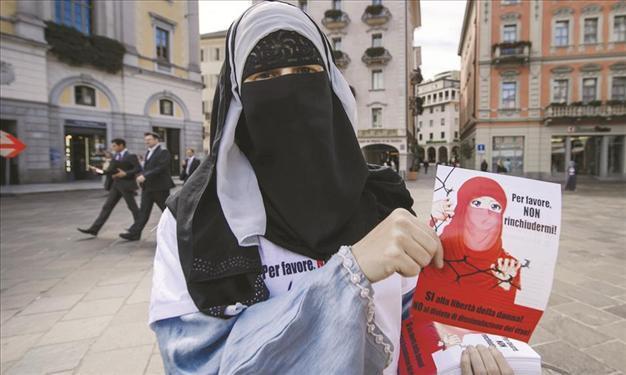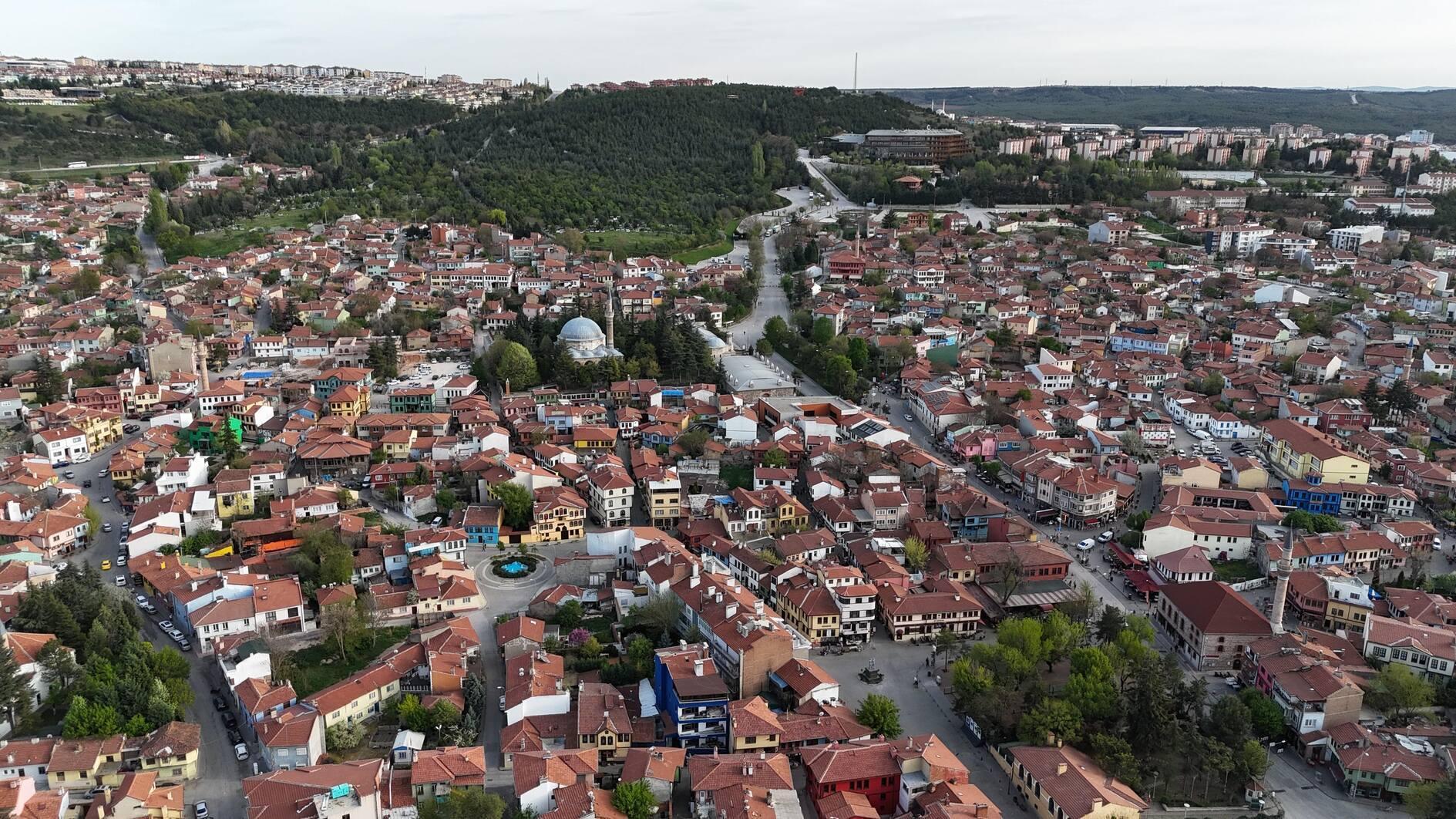Switzerland backs ban over veils
ZURICH - Reuters

A veiled woman in Lugano distributed flyers against the recent ban. AFP photo
People in the southern Swiss canton of Ticino voted to impose the country’s first ban on face-covering veils on Sept. 22, following in the footsteps of French and Belgian restrictions that rights groups say discriminate against Muslims. Almost two thirds of voters in the Italian-speaking district backed the ban that still needs to be approved by the federal Parliament in Bern before coming into effect.Campaigner Giorgio Ghiringhelli, who drew up the proposal, said the result would send a message to “Islamist fundamentalists” he said were in Ticino and across Switzerland. “Those who want to integrate are welcome irrespective of their religion,” he said in a statement on the website ilguastafeste.ch. “But those who rebuff our values and aim to build a parallel society based on religious laws, and want to place it over our society, are not welcome,” he added.
Conscription army to be kept
Amnesty International said the vote was a “black day for human rights in Ticino.” There are roughly 400,000 Muslims in Switzerland, about 5 percent of the population. Meanwhile, the country also voted overwhelmingly to keep military conscription on the same day, the third time citizens of the Alpine nation had rejected an attempt to reconstitute an institution regarded by many Swiss as national ‘glue.’
The neutral country, which has not fought an international war in 200 years, voted 73 percent in favor of maintaining the draft, seen as helping to bind together generations of Swiss who do not share a single language or culture.
Military reforms have reduced the army’s reserve of troops to 155,000, down from about 625,000 just over a half-century ago.
Along with the conscription proposal, two other referendums were on the national ballot. Swiss voters approved all-night shopping at some gas stations on highways and urban areas, and agreed to give the government more control over vaccination programs.
















